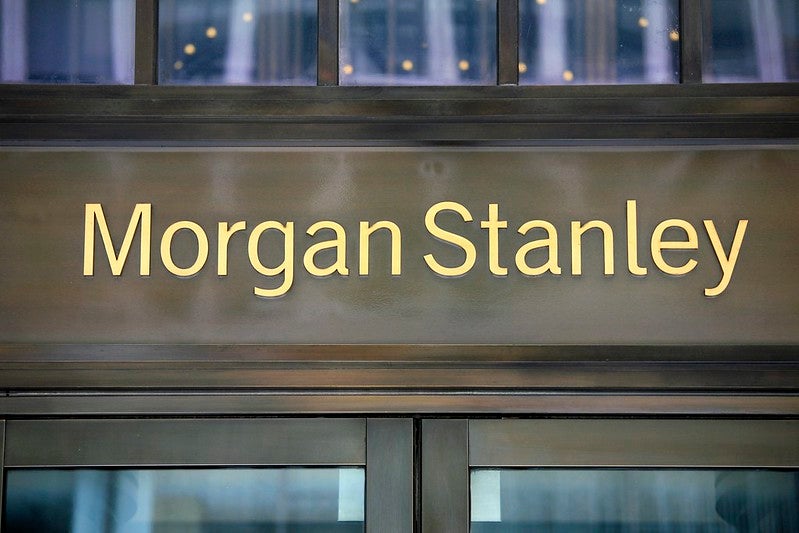
The UK general election result announced on the morning of 9 June 2017 leading to a hung government has been deemed market unfriendly, as the sterling has weakened and volatility is hitting the financial markets.
The Conservative party secured 318 seats, while the Labour party got 261 in the 8 June general elections. Prime Minister Theresa May is forming a government with the help of Northern Ireland’s Democratic Unionist Party (DUM) despite many in the Labour and Conservative camps calling for her resignation.
This ‘Tory defeat’ has brought more uncertainty to the British political sphere causing the pound to suffer by 2%, initially, against the euro (EUR) and the dollar (USD).
Several players in the wealth management industry agree that there are unpredictable times ahead.
Sterling weak
How well do you really know your competitors?
Access the most comprehensive Company Profiles on the market, powered by GlobalData. Save hours of research. Gain competitive edge.

Thank you!
Your download email will arrive shortly
Not ready to buy yet? Download a free sample
We are confident about the unique quality of our Company Profiles. However, we want you to make the most beneficial decision for your business, so we offer a free sample that you can download by submitting the below form
By GlobalDataBill Street, head of investment for EMEA at State Street Global Advisors – part of asset manager State Street Corporation, said: “While sterling weakened in the final weeks of the election campaign, markets still expected a Conservative majority, therefore this initial sterling weakness is no surprise and is likely to continue as international investors demand a higher risk premium.
“Sterling is already substantially undervalued against the USD and EUR, reflecting future uncertainties. Such under-valuations do tend to correct over long time horizons and it is possible the election result will lead to a softer Brexit. However, any move higher is likely to be delayed until there is greater certainty.”
Street expects the initial risk-off market reaction will drive gilt yields sharply lower. “Over the short term, we believe that this move will continue as political uncertainty reigns supreme. However, the emergence of a Labour-led coalition could trigger a bearish environment for gilt yields. As the market prices in campaign promises of fiscal stimulus and a softer-Brexit, we believe that gilt yields could be on course for a sustained upward move over the medium term.”
Monica Defend, head of global asset allocation research at investment firm Pioneer Investments, said that they “do not consider sterling to be attractive”.
“We consider the inflation linked bond market to be too dear, as it strongly benefits from the demand of local defined benefit pension funds due to current legislation; any change to this could put pressure on linkers. We prefer Japanese and European linkers.
“We like European equities in general — without a specific bias to the UK market — and we prefer European and Japanese equities to the US, as we expect the boost from reflation policies could have more upside in these markets, where valuations are more appealing.”
A “market unfriendly” outcome
Jason Hollands, managing director of investment management group Tilney, said that this result is “a market unfriendly outcome”.
Hollands said: “Large FTSE 100 companies are of course highly sensitive to movements in the exchange rate because in aggregate over 70% of their earnings are derived outside of the UK. Therefore, the reaction from the FTSE 100 may largely reflect this rather than a direct verdict on the policy implications or the read across to the outlook for the domestic economy.
“Investors will be scratching their heads to game out whether the central scenario of a fragile, minority Conservative government makes a “hard” or “soft” Brexit more likely.
“The key space to watch for market reaction will be the more domestically orientated companies which are typically found within in the FTSE 250 and smaller end of the market. These bore the brunt of negative reaction in the initial aftermath of the Brexit referendum and there could be renewed anxiety though this may be tempered by the reduced threat of corporation tax rises implied by the result.”
Greater volatility expected
Overall, geopolitical risk could weigh on financial assets, triggering volatility, says Defend.
“The recent escalation of terrorist attacks means that voters’ reactions and politicians’ actions are less predictable. We seek to manage potential spikes in volatility with hedging strategies and assets perceived as safe-haven, such as gold.”
Mark Phelps, AB global concentrated growth portfolio manager, added: “It seems likely that the bond and equity markets will see greater volatility, but outside of the political establishment, the result will probably be seen as confusing, but not necessarily changing a great deal.
“UK growth may now be a little lower, some investment may be delayed and unless we see a move to greater collaboration in Parliament, “stasis” may now be the order of the day. What is clear is that United Kingdom is divided, not only over Brexit but also between the generations, between North and South and between the urban and rural areas.”
Caroline Simmons, deputy head UK investment office at UBS Wealth Management added: “Given the lack of clarity on domestic policy and the impact on the Brexit negotiations, we expect sterling to remain soft. This should remain supportive of the equity market, under a Conservative minority outcome.
“However, should the market focus on concerns that a Conservative minority won’t last and that we may ultimately end up with a Labour-led parliament, then the currency related boost will likely be offset by concerns over the potential for increased corporate tax rates and nationalisations of certain industries.”
Silver linings?
In contrast, Christoph Riniker, head of equity strategy research at Swiss private banking group Julius Baer, thinks that this outcome could have a positive impact on international stocks.
“The election results do not exactly reflect the expectations encouraged by the polls. It is fair to say that the political uncertainty in the UK is rising again and thus might have implications for financial investments.
“The pound could weaken again, which in theory should have a positive impact on internationally-oriented UK stocks. While a clear majority in parliament would have had signaling effects, the upcoming hung parliament does less so. We stick to our neutral stance for the time being and reiterate our preference for the internationally oriented FTSE 100 over the domestic FTSE 250.”
Nigel Green, founder and CEO of financial consultancy firm deVere Group, believes that this result will unleash mayhem across global financial markets and that “we’re entering into a perfect storm of chaos”, but sees some opportunities ahead.
“Volatility is the only certainty in these uncertain times. But, of course, volatility can also bring considerable opportunities and investors should avoid knee jerk reactions at this time.”
Green adds, however, that UK election result is a “hammer blow” for a hard Brexit. “First, the British people have spoken and largely rejected much of the Conservative manifesto which championed a hard Brexit. And second, the leader of the Democratic Unionist Party, which is joining forces with the Conservatives to form a coalition government, have said they will not back a hard Brexit.
“The financial markets had almost already priced-in a hard Brexit and will now have to quickly reassess their position. As this adjustment takes place we can expect the uncertainty in the financial markets not only to continue but to intensify.”







